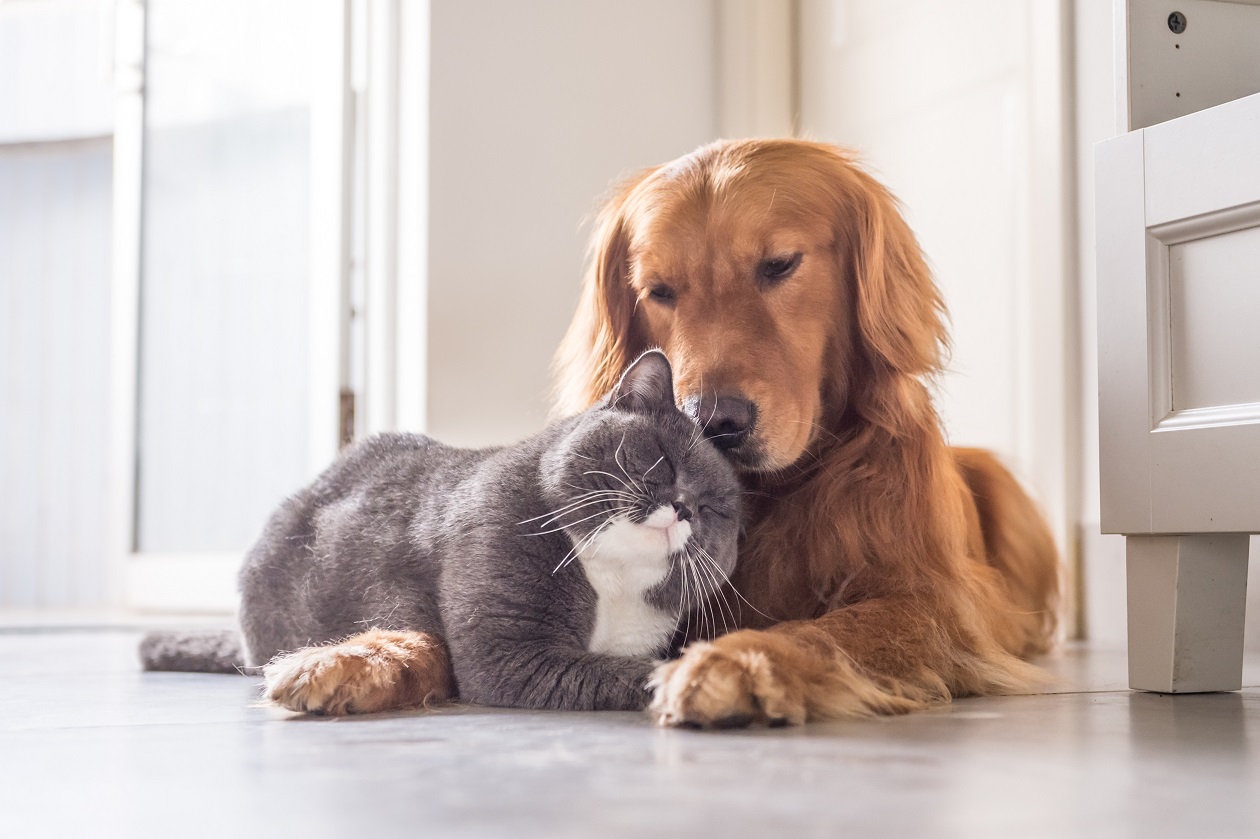If you’ve been to a few Spanish-speaking countries, or if you’ve seen shows or movies that were filmed there, you might have noticed an abundance of nicknames for loved ones within the Spanish language. There are hundreds, if not thousands, of ways you can call your family members, partners or friends, many of which are unique to a specific country or region.
Since it’s quite a significant amount, we decided to compile all of them into one article, crafting a perfect resource for both those who are teaching and learning Spanish. So, let’s start, shall we?
Spanish Nicknames for Your Loved Ones
When curating the list, we decided to focus on dividing the nicknames into different categories - after all, in most cases, they will be completely different, as you won’t be calling your mom or your grandmother the same way you would call your boyfriend or girlfriend.
We also tried to convey the meaning of the nickname, not only the direct translation, but also more general context, such as why is it used or by who.

Spanish Nicknames for Family Members
Here is a list of most commonly used nicknames for your family members - some specific to a Spanish-speaking country, while others are very common regardless of where you go.
NICKNAME | WHO IS IT FOR | WHAT DOES IT MEAN |
Mis viejos | Parents | My folks |
Los jefes | Parents | Direct translation means “bosses”, used to refer to parents in a relaxed yet respectful way and to show their authority |
Papi / Papito | Father | Dad / daddy |
Mami / Mamita | Mother | Mom / Mommy |
Pa / Ma | Parents | Laid back version of mami and papi, typically used by younger people |
Hermano / Hermana | Siblings | Standard way of referring to your siblings, means brother / sister |
Mano / Mana | Siblings | Short version of hermano / hermana, similar to English bro and sis |
Tío / Tía | Uncle and aunt | Aside from actual uncles and aunts, the term is also used with close family friends |
Compadre / Comadre | Godparents | Godfather / Godmother |
Niñita | Young girl | Translates to little girl and is used as an endorsement term for young girls |
Muchachito / Muchachita | Younger family members | Used to refer to younger members of the family, usually your nieces and nephews, but not only; it means “little person” |
Polluelos | Younger family members, children | Typically used when talking about the kids in the family; means “baby chicks” |
Un príncipe / Una princesa | Children | Meaning a prince / a princess, these nicknames are often used affectionately with small children |
Muñeco / Muñeca | Children | Translating to doll, this is a nickname typically used for children when they are still in their baby stage |
Nene / Nena | Younger family members, children | Kid, baby |
Peque | Children | Translating to little one or kid, this is typically used by parents to refer to their young child |
Papi / Papito / Mami / Mamita | Children | This one might seem strange to non-Spanish speakers, especially when you consider that their direct translation is mommy and daddy, but parents often use these terms to refer to their children, especially when they’re little |
Abuelo / Abuela / Abue | Older family members or family friends | Grandmother / grandfather; used to show respect to elders, even if not blood related; abue is the gender-neutral form |

Spanish Nicknames for Friends
Have you wondered what Spanish people call their friends? There are actually many cute and funny Spanish nicknames for friends to choose from, some used only in a specific country, while others common everywhere.
NICKNAME | WHAT DOES IT MEAN |
Primo | Although its direct translation is cousin, this term is often used with close friends the same way bro and sister are in English |
Tío / Tía | Often used in Spain, equivalent to dude in English |
Chino / China | Even though the direct translation of this is Chinese, it can also be used in Mexican Spanish to refer to someone with curly hair |
Chica | Used the same way you would use girl in English when talking to friends, e.g. ‘Qué tal, chica?’ is the same as ‘What’s up girl?’ |
Chulo / Chula | In Puerto Rican, Guatemalan, Honduran and Mexican Spanish, chulo and chula are used to refer to someone beautiful |
Loco / Loca | Translates to crazy or fool but used in a loving way with close friends rather than having a negative connotation |
Lengua larga | If your friends love to talk, you can call them this - it translates to Chatty Kathy in English - although be careful, as even though it can be used affectionately, some might take it negatively |
Mija / Mijo | These are shortened versions of Mi hija and Mi hijo and are often used to refer to close friends, the same way you would use girl or dude in English |
Esé | Used in Mexican Spanish, this term is used among men and can be roughly translated to homeboy |
Chismoso / Chismosa | If you have a friend that always has the best gossip and seems to always be updated on what is happening, then this nickname will be perfect for them |
Cerebro | Translating to “the brain”, this nickname is used for someone very smart and intelligent |
Querido / Querida | Meaning dear, this nickname can be used both to start a letter to someone you’re close with as well as to address them directly |
Comecocos | Spanish name for Pac Man, this nickname can be used for a friend that always seems to be hungry |
Pana | Used mostly in Venezuela and Colombia, similar meaning to English buddy |
Dormilón / Dormilona | Equivalent to the English sleepyhead, this is a nickname you would use for any friend who loves to sleep |
Colocho / Colocha | Used in Guatemalan Spanish to refer to a person with curly hair |

Spanish Nicknames for Lovers
Looking for cute Spanish nicknames for your other half? We’ve prepared plenty to choose from.
NICKNAME | WHAT DOES IT MEAN |
Churri | Used in Chile and Peru to refer to a boyfriend or girlfriend, as well as in Spain in relation to a significant other |
Animal nicknames: Conejito, Osito/Osita, Monito/Monita, Bichito | In order, it translates to: little bunny, little bear, little monkey and little bug |
Tesoro | Originating from the latin word thesaurus, meaning treasure, tesoro is nowadays used in both Italian and Spanish as an equivalent to English sweetheart |
Cariño | Used to refer to a partner regardless of gender, can be translated into English as darling, dear, sweetie, etc. |
Amor / Amorcito | Love, can be used regardless of gender as Amorcita (grammatically correct female version) is not typically used |
Bebé | Equals to baby or babe in English; can be used regardless of gender, although some prefer to use the gender-specific forms - bebito or bebita |
Guapo / Guapa | Handsome / pretty, typically used by couples in the early stages of relationship |
Hermoso / Hermosa | Gorgeous / beautiful, typically used by couples later on in the relationship |
Papi Chulo | This is more of a cheeky nickname, used to refer to a boyfriend. It translates to handsome daddy and is usually used when you want to express that you find him very attractive |
Mi sirenita | Referencing The Little Mermaid, this nickname is used by boyfriends for their girlfriends |
Bombón | Can be loosely translated to sweetheart or cutie |
Media naranja | Meaning literally “half orange”, media naranja is a Spanish equivalent to better half or soulmate in English |
Corazón de melón | Translating to “melon heart”, you would use this nickname to emphasize how sweet someone is |
Jevo / Jeva | Used in Dominican Spanish to affectionately refer to one’s boyfriend or girlfriend |
Here are a few more cute Spanish nicknames for boyfriend, girlfriend or simply partner you can use, this time with more straightforward translations:
NICKNAME | MEANING | NICKNAME | MEANING |
Mi sol | My sun | Maravilla | Wonder |
Mi vida | My life | Rosa | Rose |
Mi corazón | My heart | Linda | Pretty |
Mi cielo | My sky | Perla | Pearl |
Mi alma | My soul | Dulzura | Sweetness |
Mi amado | My beloved | Lucero | Bright light |
Mi Rey / Mi Reina | My king / My queen | Paloma | Dove |
Amante | Lover | Azucena | Lily |
Mariposa | Butterfly | Hada | Fairy |
Bella | Beautiful | Maravilloso/a | Gorgeous |

Bonus: Spanish Nicknames for Pets
Of course, we couldn’t forget about our furry family members! Here are some common examples of nicknames a Spanish-speaking person would use to refer to their pet.
NICKNAME | WHAT DOES IT MEAN |
Bebé | As mentioned, this nickname translates to baby and aside from people, it’s also very commonly used for pets as they are just as special |
Ángel | If you want to express how grateful you are for your furry friend, you can use this nickname, which translates to angel |
Gordito / Gordita | Although the direct translation might not be the nicest one (it translates to fatty), we promise that it’s actually endearing |
Mi precioso / Mi preciosa | Another nickname to showcase appreciation for the furry friend being in our lives is Mi precioso/a, which means My precious |
Peludo / Peluda | Meaning furry one, this term is used to express affection for any pet with fur |
The Bottom Line
Nicknames are one of the best ways of expressing affection, and that doesn’t change when you switch the language to Spanish - and since there’s an abundance of terms to choose from, you have quite a few things you can try to see which one your family, friends and partner will love the most. This shouldn’t come as a surprise, though, as Spanish people are very affectionate - it only makes sense for them to have a long list of nicknames to choose from.
Want to learn more about the Spanish language? Or maybe you’re looking for free resources to use either to teach others or to explore this language yourself? Whatever the case, at Speaking Latino, we’ve got you covered.
Our blog section is full of interesting facts, meanwhile our Spanish Teachers section contains several useful teaching resources, from free lesson plans, to free list of Spanish songs to better understand the language and a cultural calendar, ensuring you or your student learn not only the grammar or vocabulary, but also culture of countries where Spanish is a widely spoken language.